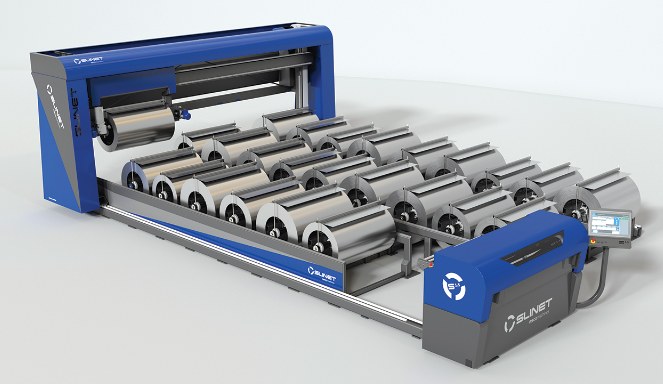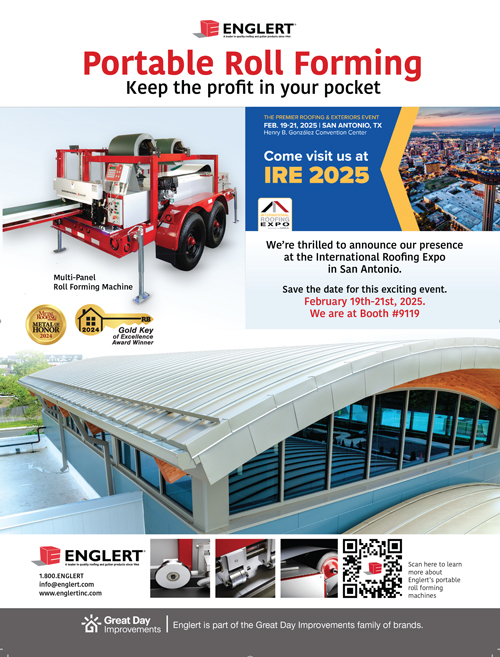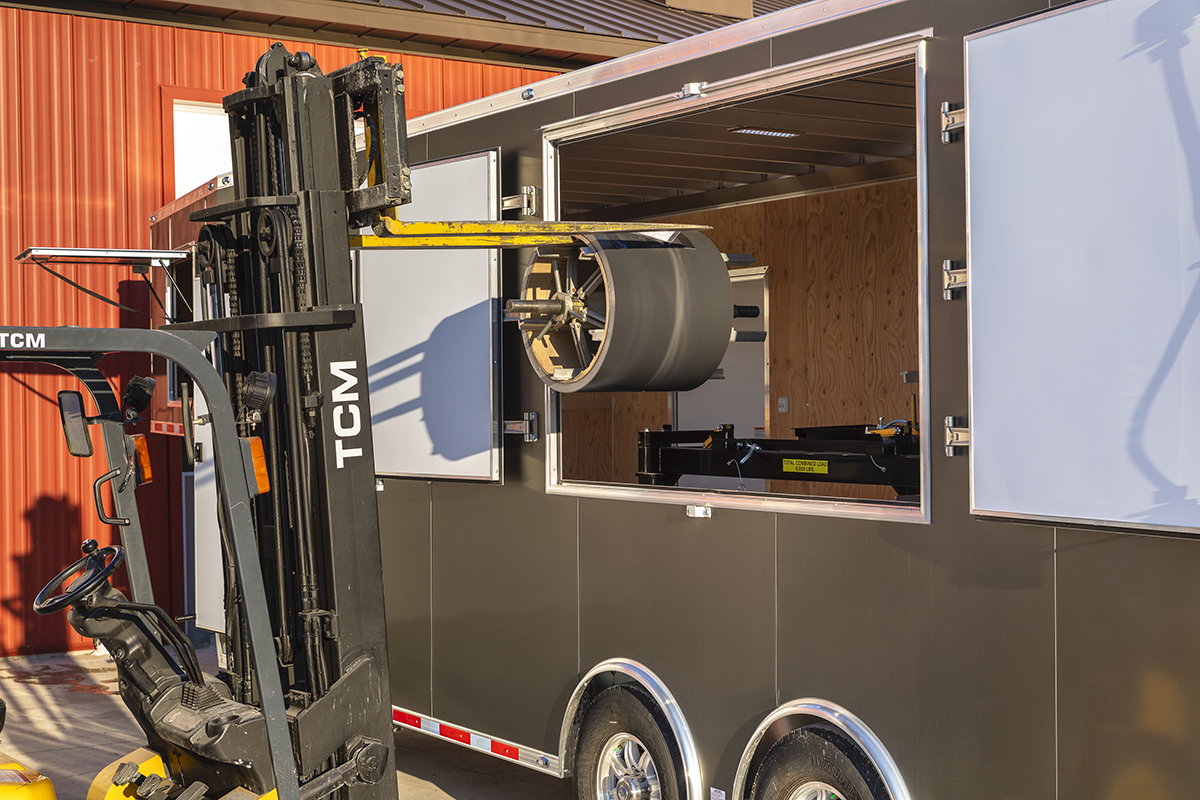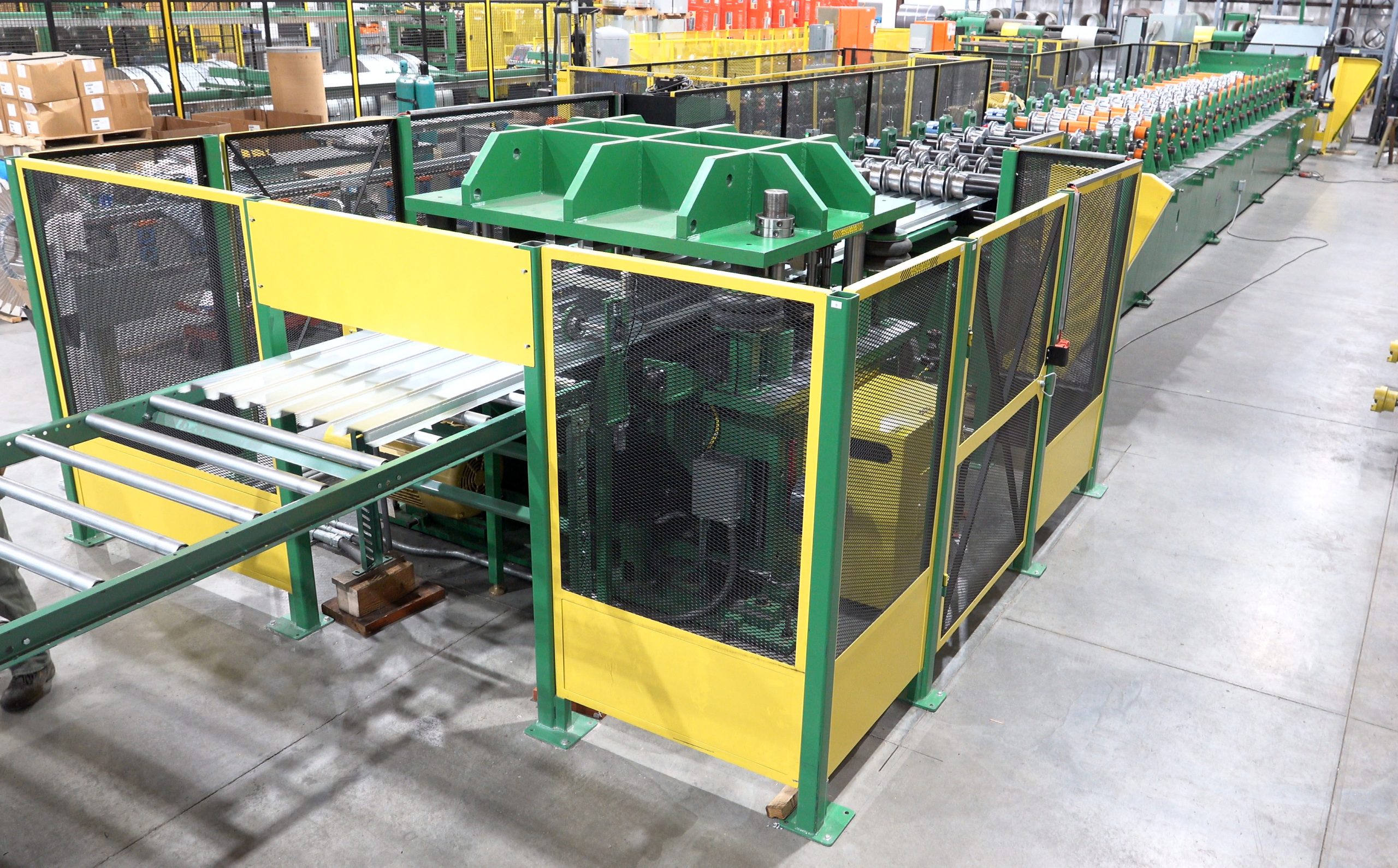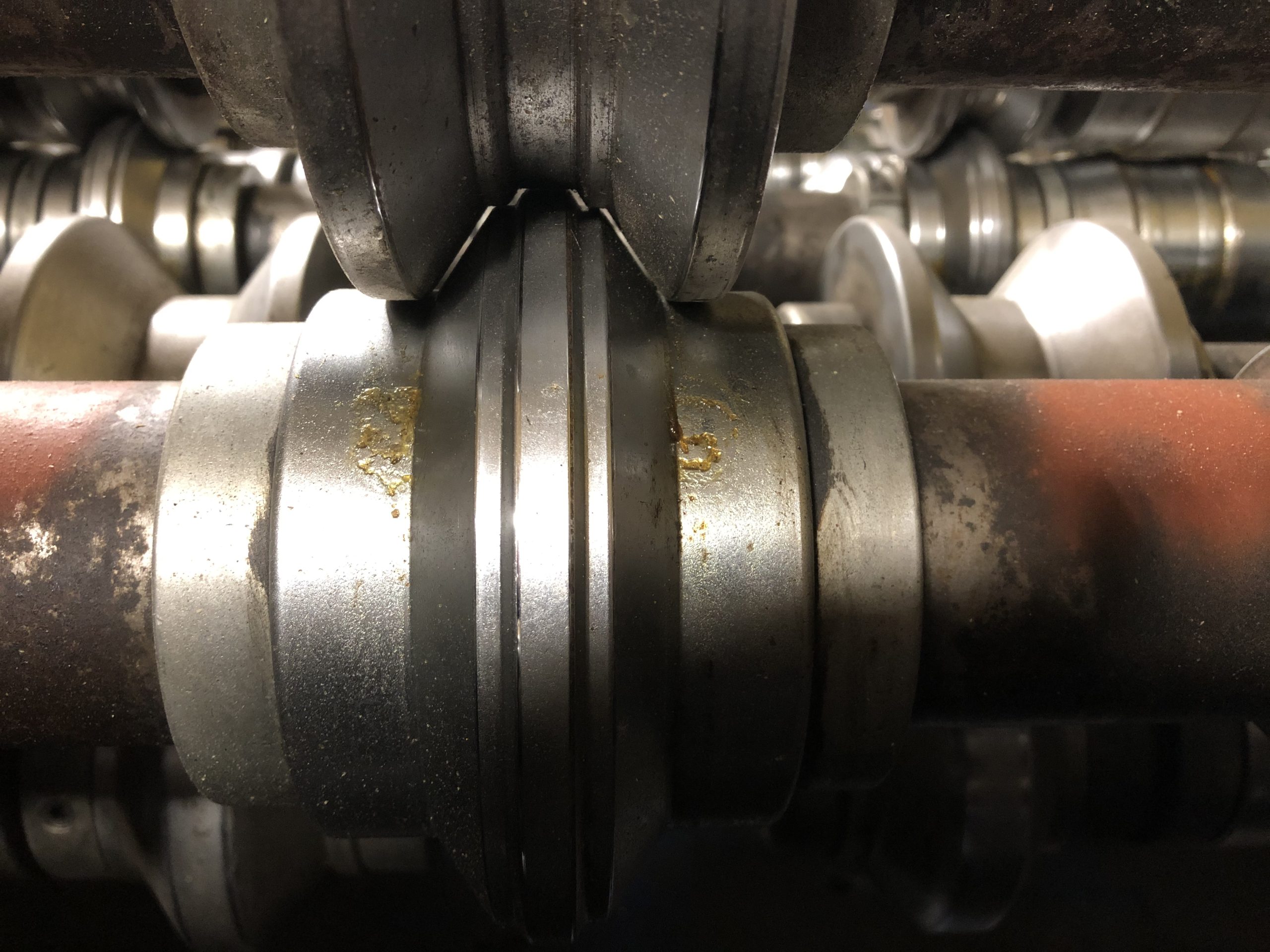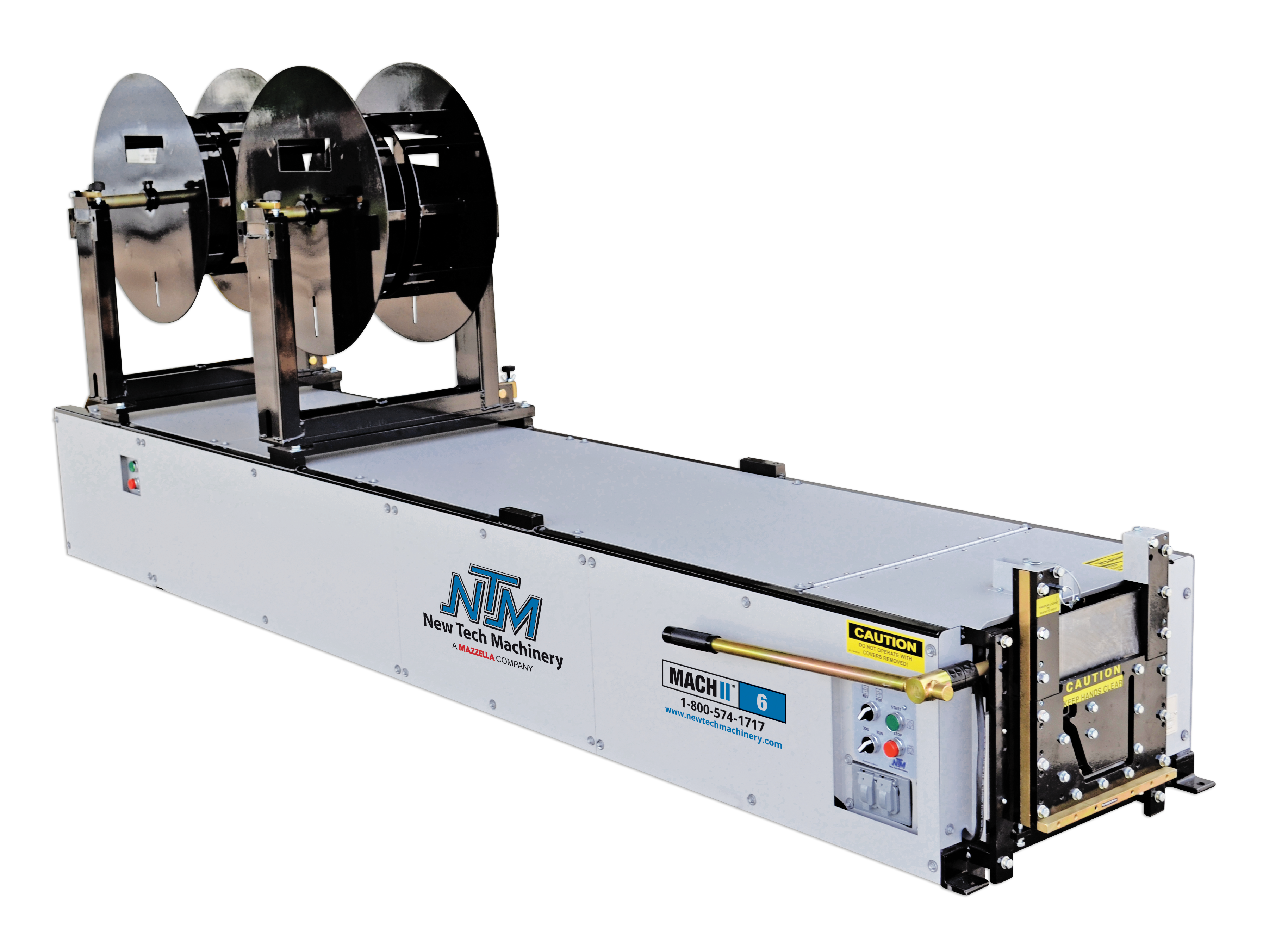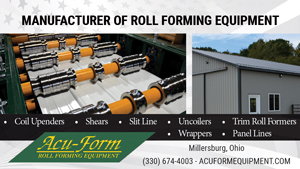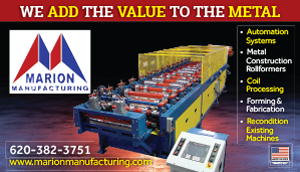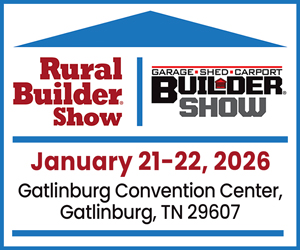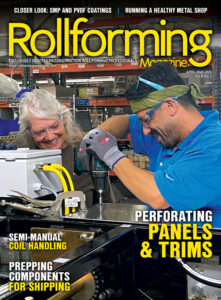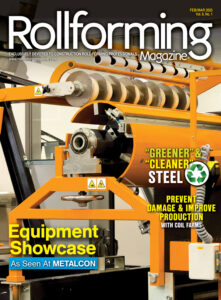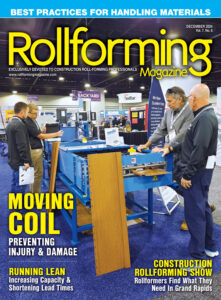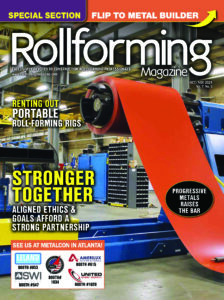An automated coil storage system, often called a coil farm, is designed to organize and store metal coils before they are processed. It serves as a key hub in the production chain, supporting critical operations like cutting, slitting, roll forming, and stamping. For shops that include slitting or cut-to-length operations in their workflow, investing in a coil farm can help resolve storage challenges, reduce material damage, and lower labor costs.
Of course, a coil farm is no small investment. The cost of racks, handling equipment, and storage systems needs to be carefully weighed against the potential benefits. To decide if this investment is right for your business, consider these key questions:
How many different materials do I need readily available?
How often do I need to change materials during production?
If I could increase production, could I sell more? How much would automated changeovers boost productivity?
If your shop produces a limited number of panels and trims—and you don’t plan to grow—investing in a coil farm might not be the best fit. However, if you’re planning to expand, a coil farm can help you scale efficiently. Shops with high production volumes often rely on coil farms to maintain a steady supply of raw materials. Plus, modern systems are often designed to grow with your business, allowing you to add storage capacity as your needs increase.
Space and Floor Capacity
One of the first things to consider is whether your facility has enough room for a coil farm. These systems take up a lot of space, so some shops may need to expand. Equipment manufacturers can often customize the layout to fit your available space and ensure the best workflow. Aligning the coil farm with your production layout is critical—it should minimize unnecessary movement of materials to maximize efficiency. When considering the best option for your business, keep in mind that not all systems can be integrated with roll formers and only some can have two slitting lines on it at the same time.
You’ll also need to think about the building’s foundation. Metal coils are heavy—typically around 10,000 pounds per coil. Some farms can store over 60 coils, so the concrete floor must be thick and strong enough to handle the weight. Additionally, because the coils are moved and repositioned, the foundation must resist cracking under dynamic pressure. It’s a good idea to consult a structural engineer to ensure your floor is up to the task. If the foundation isn’t strong and level, the equipment may shift out of alignment, causing operational issues.
Keeping the System Running Smoothly
Automated coil farms can significantly reduce labor for coil changeovers, but they still require trained operators. Ideally, operators should be trained by the equipment vendor. If that’s not an option, experienced operators should train new staff to ensure they understand how to run the machine safely and efficiently.

ASCOs SLINET S1.5 Slitter with fully
automated 5t coil farm minimizes
production time and automates
processes. The high end S1.5
Slitter can process directly out
of the automated, intelligent coil
storage. Courtesy of ASCO USA, Inc.
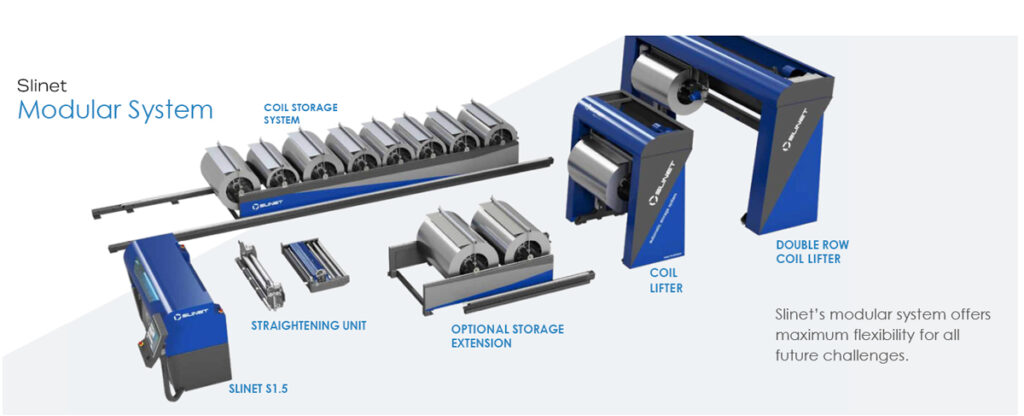
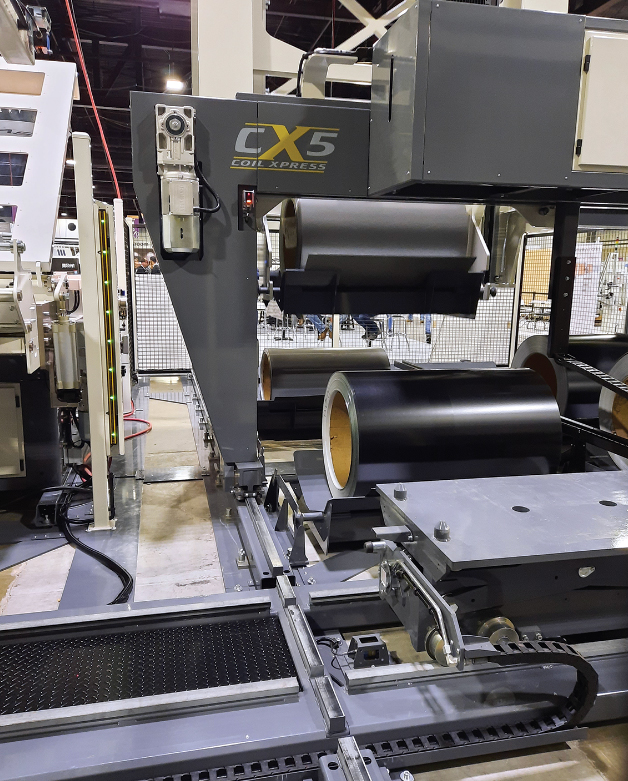
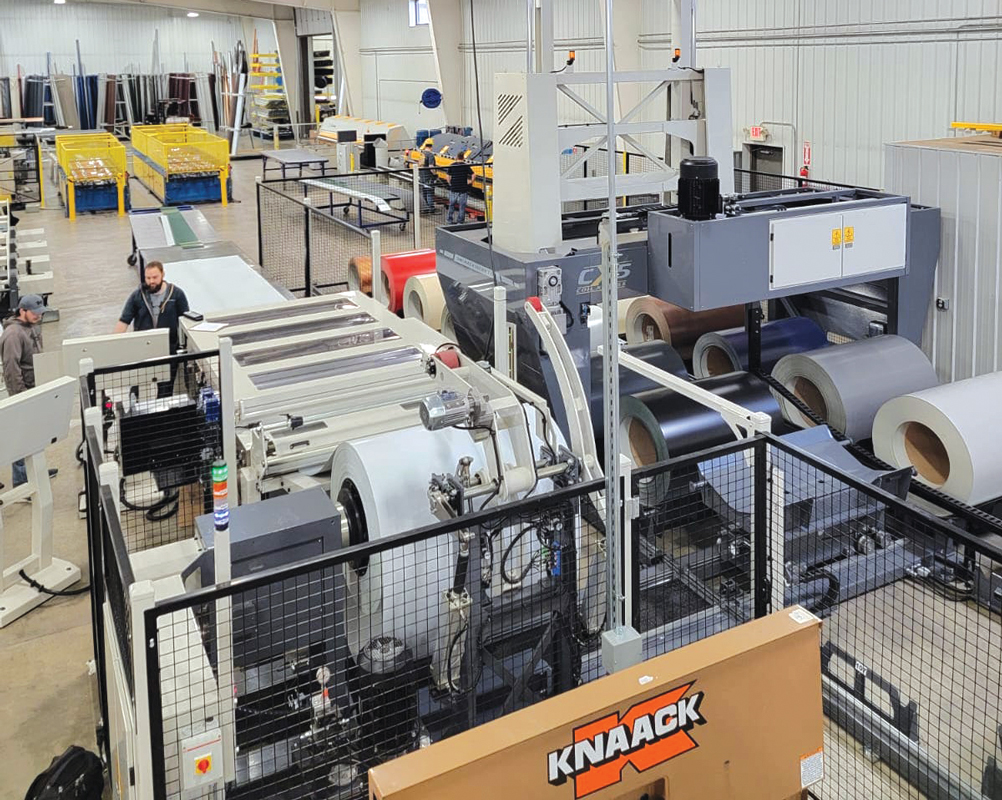
Regular maintenance is also key. Optic sensors should be wiped clean to ensure accurate readings, and proximity sensors (which act as safety mechanisms) must remain clear to detect metal locations. Keeping the equipment clean and well-maintained helps prevent downtime and ensures smooth operation.
As with any essential equipment, having reliable service support is crucial. Partnering with a vendor that offers robust technical assistance can make all the difference.
Benefits of a Coil Farm
Here’s a quick summary of what a coil farm can offer:
• Storage: Coils are organized on racks or flat surfaces for easy access. Automated systems can make coil changes fast and efficient and can also keep track of material use so the operator always knows how much component stock can be run from the remaining coil stock.
• Handling Equipment: Tools like overhead cranes, forklifts, or coil lifters safely move heavy coils.
• Identification and Tracking: Coils are labeled with specifications (e.g., material type, thickness, weight) and tracked using barcodes or RFID systems for efficient inventory management.
• Pre-processing Preparation: The coil farm serves as a staging area, readying coils for processes like slitting, cutting, or roll forming.
Why It Matters
Incorporating a coil farm into your metal-forming operation boosts efficiency, flexibility, and cost-effectiveness.
• Efficiency: A well-organized system ensures a steady supply of materials and reduces the need for forklifts — and a forklift operator — during coil changeovers.
• Flexibility: You can stock various materials and sizes to meet diverse production demands.
• Cost-Effectiveness: Proper storage prevents damage, minimizes waste, and enhances overall productivity.
Conclusion
Investing in a coil farm is a significant decision, but it can deliver huge advantages for shops with high production needs or plans for growth. By improving workflow, reducing labor, and supporting scalability, a coil farm can position your shop for long-term success. Carefully assess your production goals, facility layout, and future plans to determine if it’s the right step for your business.
Resources
• ASCO USA, Inc., www.asco-machines.com
• CIDAN Machinery, www.cidan.com
• SWI Machinery, www.swimachinery.com
Editor’s Note: If automated coil handling doesn’t fit your business model, be sure to watch for an article about manual coil handling in the April edition of Rollforming Magazine.


